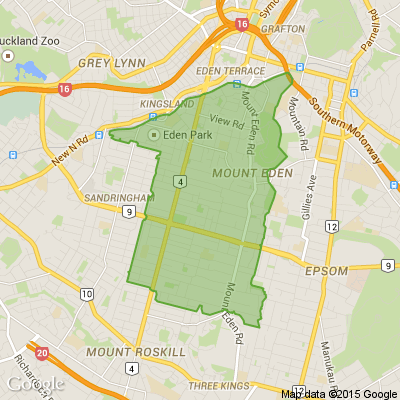The Influence of the Whānau - Day 9
In a small Māori pā (village) nestled beside a flowing river, a young boy named Rangi lived with his whānau. Rangi was curious and adventurous, always exploring the ngahere (forest) and listening to the stories of his kaumātua (elders). The kaumātua would often remind him, “He waka eke noa”—we are all in this together, and our actions affect the collective.
Rangi's best friend, Manu, was a clever boy but sometimes made poor choices. Manu had recently begun spending time with a group of older boys from another pā who were known for their reckless behavior. They would waste kai (food), leave rubbish in the ngahere, and even disturb the sacred awa (river) by throwing stones at eels.
One day, Manu invited Rangi to join the group, saying, “Come on, Rangi! They’re fun, and they won’t hurt anyone. We’re just having a good time!” Unsure, Rangi agreed, feeling pressure to fit in.
The group’s leader, Matiu, proposed a game: they would sneak into the kaumātua's kumara patch at night and take some for a "feast." Rangi hesitated. He remembered the kaumātua saying how much work went into growing the kumara, with karakia (prayers) and care for the soil. But he stayed silent, feeling outnumbered.
That night, the group raided the garden. As they laughed and ate the stolen kumara by the fire, Rangi felt uneasy. He realized that this was not who he wanted to be. When he saw Manu’s joy in impressing Matiu, Rangi felt torn but remained quiet.
The next morning, the kaumātua discovered the missing kumara and the trampled garden. They called the entire pā together, expressing sadness, not anger. “Our ancestors teach us that the whenua (land) provides for all of us, but only if we treat it with respect,” said one elder. “When we harm the whenua, we harm ourselves.”
Rangi’s heart sank. That evening, he confessed to the kaumātua and his whānau, explaining everything. To his surprise, they did not scold him harshly. Instead, they said, “He tangata tītoki, he tangata rākau—a person is like a tree; they grow straight when supported by others. You must choose companions who uphold the values of your whānau and whenua.”
Rangi decided to distance himself from Manu’s new group and instead spent time with those who respected the land and upheld the teachings of their ancestors. Over time, he encouraged Manu to rejoin him, and together they worked to rebuild the kumara patch, learning from the kaumātua.
---
Moral
This story highlights the importance of right company and like-mindedness. It shows that no one is inherently bad, but the influence of others and the situations we choose can lead us astray. Surrounding ourselves with those who uphold values like respect, care, and collective well-being ensures a life of balance and harmony.
Ka mua, ka muri — by learning from the past, we can walk into the future.
Best way to use leftovers?
I'm sure you've got some excess ham at home or cold roast potatoes.
What are some of your favourite ways to use leftover food from Christmas day? Share below.

Te Pūrākau o Te Rangatira Ngākau Hūmarie - Day 34
The Tale of the Humble Leader
In a small Māori village near the coast of Aotearoa, the whānau were preparing for Te Rā o te Kirihimete (Christmas Day). It was a time of celebration, sharing, and remembering the values of aroha (love), manaakitanga (hospitality), and kotahitanga (unity). However, this year, the village faced a challenge. Their rangatira, Wiremu, had grown distant and prideful, burdened by his position.
Wiremu often made decisions alone, thinking that his wisdom and authority were enough to guide the iwi. While the villagers respected him, they felt unheard, and the spirit of unity began to fade.
As the Kirihimete celebrations approached, the kaumātua, Hinewai, decided to intervene. She invited Wiremu to the marae one evening, where she shared a story about Tāwhaki, the demigod who ascended to the heavens not through power, but through humility and service.
“Wiremu,” Hinewai said, “even the greatest leaders are at their strongest when they serve their people. Leadership is not about standing above others but walking beside them.”
Wiremu reflected on her words but was unsure how to change.
The Lesson of the Whetū (Stars)
On Christmas Eve, as the village prepared for their festivities, a fierce storm rolled in from the sea. The winds howled, and the rain poured, threatening to ruin the celebration. The central whare kai (dining hall) began to leak, and the decorations the tamariki had made were soaked. The people gathered anxiously, unsure of how to proceed.
Wiremu stood at the edge of the marae, looking at the chaos. In that moment, Hinewai’s words echoed in his mind: “Even the greatest leaders serve their people.”
Without hesitation, Wiremu took off his korowai (cloak of leadership) and joined the villagers. He grabbed buckets to catch the rain, helped rebuild the decorations, and reassured the tamariki that their work would be restored. His humility inspired others, and soon the entire iwi was working together, laughing and singing as they prepared the whare for the celebration.
A Kirihimete Under the Stars
When the storm cleared, the sky was filled with bright whetū (stars). The villagers gathered around a glowing fire outside the whare, sharing kai and stories of gratitude. Wiremu stood among them, no longer as a distant rangatira, but as a friend and servant of his people.
Under the starlit sky, Hinewai stood and addressed the iwi.
“This Kirihimete, we are reminded that true leadership is like the brightest whetū. It does not shine to outdo others but guides them through darkness. Wiremu has shown us the power of humility, and through his service, we have rediscovered our unity.”
Wiremu bowed his head humbly. “Tonight, you have all taught me that a leader is nothing without their people. Let us carry this spirit of kotahitanga and aroha into the new year.”
The villagers cheered, and the spirit of Te Rā o te Kirihimete shone brightly in their hearts.
Moral of the Story:
Leadership is not about authority or pride but about humility and service. Like the whetū that guide travelers, a true leader walks alongside their people, bringing light and unity through service and aroha. At Christmas, we are reminded of the importance of giving, humility, and leading with love.
⚠️ DOGS DIE IN HOT CARS. If you love them, don't leave them. ⚠️
It's a message we share time and time again, and this year, we're calling on you to help us spread that message further.
Did you know that calls to SPCA about dogs left inside hot cars made up a whopping 11% of all welfare calls last summer? This is a completely preventable issue, and one which is causing hundreds of dogs (often loved pets) to suffer.
Here are some quick facts to share with the dog owners in your life:
👉 The temperature inside a car can heat to over 50°C in less than 15 minutes.
👉 Parking in the shade and cracking windows does little to help on a warm day. Dogs rely on panting to keep cool, which they can't do in a hot car.
👉 This puts dogs at a high risk of heatstroke - a serious condition for dogs, with a mortality rate between 39%-50%.
👉 It is an offence under the Animal Welfare Act to leave a dog in a hot vehicle if they are showing signs of heat stress. You can be fined, and prosecuted.
SPCA has created downloadable resources to help you spread the message even further. Posters, a flyer, and a social media tile can be downloaded from our website here: www.spca.nz...
We encourage you to use these - and ask your local businesses to display the posters if they can. Flyers can be kept in your car and handed out as needed.
This is a community problem, and one we cannot solve alone. Help us to prevent more tragedies this summer by sharing this post.
On behalf of the animals - thank you ❤️







 Loading…
Loading…




